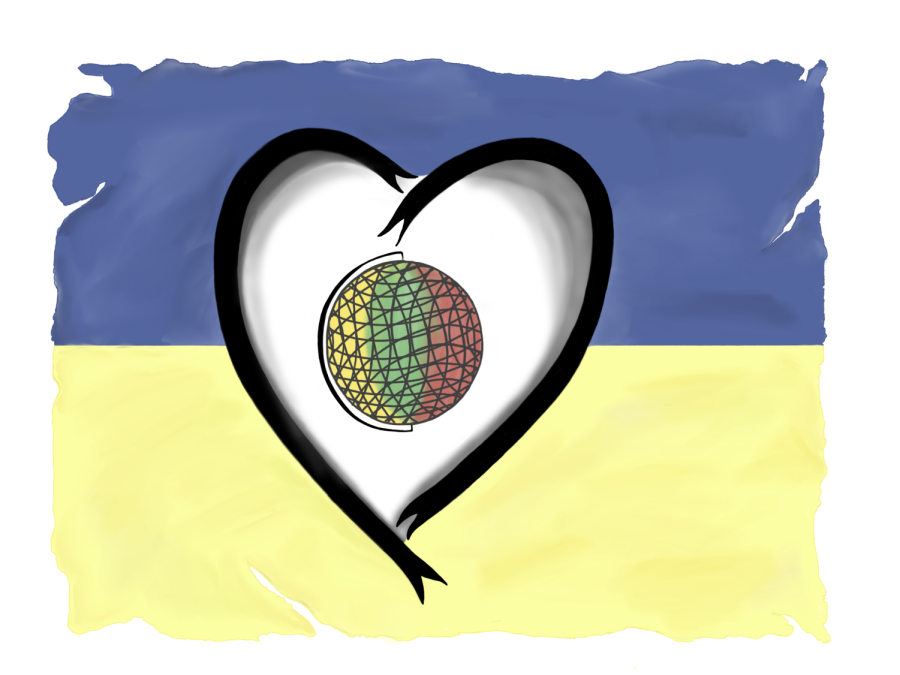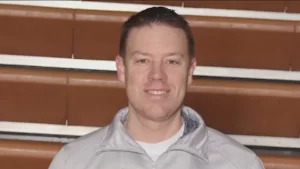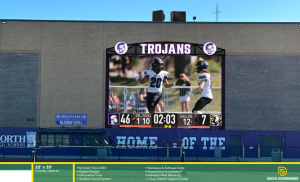Children of war: a conversation with my grandmother
October 10, 2022
“I was young, so I don’t remember much. My memory is poor, and 1945 was a long time ago. Your other grandparents might be better sources for this project.”
Forever modest; it was annoying, but a breath of fresh air in a society so self-obsessed.
“Please. The project is due tomorrow and I need to get a good grade.”
Quiet grumbling followed by reluctant agreement; thank you.
“Let’s get this over with.”
“Fleeing a Russia-invaded territory, tell me about it.”
“There’s nothing to tell. We left in a horse-drawn wagon. Sometimes the soldiers marched down the streets in uniform.”
“Were you scared?”
“No.”
Pause.
“You have to remember I was 5.”
Scared is certainly a feeling I felt at 5. Trauma has a way of imprinting itself on people.
“I need answers that are more in-depth. Can you share anything you remember?”
Her words are few and pointed and so this request is not one that felt natural on my lips.
“Our mother would always give my sisters and me sugar cubes to eat. That way we’d be forced to stay silent.”
Silence is a harrowing word; oppression, fear, emptiness.
“It kept Lithuanian out of our mouths. I didn’t mind though. The sugar cubes tasted good.”
I met her stony, wrinkled expression with a nervous chuckle. A faint smile. A fond memory.
“What else happened during your wagon journey?”
Pause.
“Is there anything else you remember?”
Pause.
“My mother was sad.”
My eyes ask why. She knows.
“Before we left, we visited the town square. I guess her brother had been caught. He was a Freedom Fighter so the Soviets hung him in the center of town. That’s why she was sad.”
Sad has never meant so much.
“I’m so sorry. Were you upset?”
Exasperation. Emotions aren’t something she knows.
“You have to remember I was 5.”
She’s said that before. I remember.
“What happened after you fled?”
“Lots of things happened.”
Another silent request. She understands me. She’ll share more.
“Me, my sisters, my mother, and my grandmother arrived in Ukte Germany. There we stayed in a nice building.”
“What was this building?”
“A DC.”
Deportation camp.
“What did you experience there?”
Pause.
“My grandmother died and so my mom was still upset. But my sisters and I had such a fun time.”
How?
“We played lots of games with the other children. We threw tomatoes at the walls. It was a huge contest.”
More. Tell me more.
“That’s it. Me and my new friends left Ukte and took a boat to America. That’s it.”
That’s it? I peer down at my assignment, a two-page-long generic questionnaire, of which none of the questions have been answered. Not in the way my teacher wants them to be, anyways.
As I sat beside my grandmother that day, I became angry; she didn’t remember enough, didn’t care enough to respond in emotional detail. I never stopped to consider that the questions may have been flawed or that the assignment failed to recognize the diversity of perspective and experience.
My grandmother’s childhood was horrific, consisting of experiences so traumatic that I could not tangibly understand her lack of emotion. I now realize that my grandmother’s attitude towards life – her silent, withdrawn, steely nature – was a reflection of her trauma. With a childhood so unbearable, so plagued with war, she quickly learned that violence was an expectation, safety a gift.
As an upper-middle-class American, I used to take my safety for granted. Today, however, I must grapple with a heavy and recent realization: that the same war atrocities my grandmother endured are now destroying countless Ukrainian children. A reflection of my grandmother will one day flicker in the eyes of each survivor. A childhood of devastation. A life branded by trauma.
They are only 5.


























